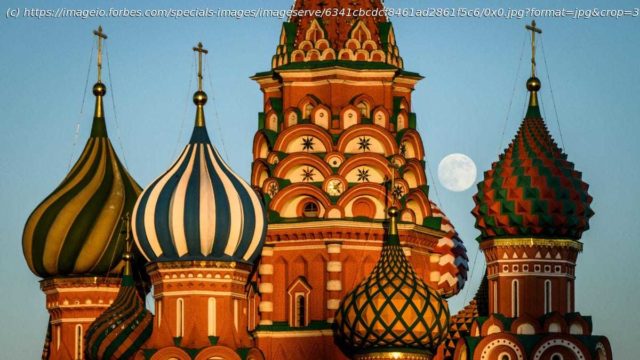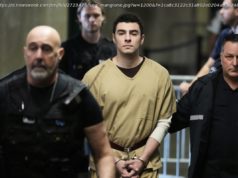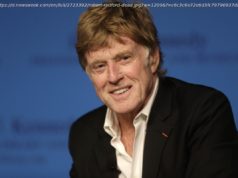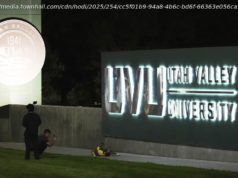These books will enhance your knowledge of the politics, history and literature of Russia and Ukraine.
Reading Twitter threads is fine, but if you want a deeper understanding of an issue, it’s a good idea to read books. Below is a look at books to read on Russia and Ukraine that will enhance your knowledge of the war and both countries.
Vladimir Putin: Many experts agree that without Vladimir Putin, Russia likely would not have launched its large-scale invasion of Ukraine on February 24, 2022. An excellent place to learn more about the Russian leader is Syracuse University Professor Brian D. Taylor’s The Code of Putinism, which explains the worldview of Putin and his closest supporters. Another outstanding book about Putin is journalist Catherine Belton’s Putin’s People, subtitled “How the KGB Took Back Russia and Then Took on the West.” In All the Kremlin’s Men: Inside the Court of Vladimir Putin, Russian journalist Mikhail Zygar paints a vivid portrait of those around Putin and the influence of the security apparatus.
In Weak Strongman: The Limits of Power in Putin’s Russia, Timothy Frye argues that Putin is similar to other autocrats—much weaker than he appears, in part because he must rely on weak state institutions. Journalist Shaun Walker’s The Long Hangover: Putin’s New Russia and the Ghosts of the Past gives context to what became Putin’s ultimate plan for Ukraine. He writes that Putin used “a simplified narrative of the Second World War to imply Russia must unite once again against a foreign threat.”
Peter Pomerantsev’s Nothing is True and Everything is Possible, Adventures in Modern Russia is an inside look from a former TV producer at the early freedom on Russian TV in the post-Soviet period—and how Putin and his allies snuffed out that freedom. In Between Two Fires, New Yorker Moscow correspondent Joshua Yaffa explains Putin’s control of Russian media, the belief in the need for a strong central leader, the compromises many Russians make and events that hinted at the wider invasion of Ukraine.
The lost opportunity of Russia becoming a Western-style democracy with an economy not encumbered by corruption—if that opportunity existed—can be found in several books about reforms during Boris Yeltsin’s rule before Putin became president. These books include Chrystia Freeland’s Sale of the Century: The Inside Story of the Second Russian Revolution, Anders Åslund’s Russia’s Capitalist Revolution and Karen Dawisha’s Putin’s Kleptocracy, where she argues that a “kleptocratic tribute system [is] underlying Russia’s authoritarian regime.”
In Not One Inch: America, Russia, and the Making of Post-Cold War Stalemate, M. E. Sarotte provides a comprehensive history of the expansion of NATO following the fall of the Soviet Union and the end of communist regimes in Eastern Europe. Anne Applebaum’s Iron Curtain: The Crushing of Eastern Europe, 1944-1956 and Timothy Garton Ash’s The Magic Lantern: The Revolution ’89 Witnessed in Warsaw, Budapest, Berlin and Prague explain why so many people in Eastern Europe wanted their countries to join NATO.
A genre of books exists that could be called “You should have listened to me about Putin.” They include Garry Kasparov’s Winter Is Coming: Why Vladimir Putin and Enemies of the Free World Must Be Stopped, Fiona Hill and Clifford Gaddy’s Mr. Putin: Operative in the Kremlin, and Mark Galeotti’s We Need to Talk About Putin: How the West Gets Him Wrong, where Galeotti correctly predicted: “It is hard to see any substantive improvement in relations with Russia, so long as Putin is in the Kremlin.” A post-February 2022 entry is The Russia Conundrum by Mikhail Khodorkovsky—who suffered for years in a Russian prison but believes “Russia can be saved from an endless succession of dictatorships, that she can become a normal country.”
Putin’s Other Wars: Russian armed forces have committed widespread human rights abuses in Ukraine, including torture, bombing hospitals and attacking civilians. Anna Borshchevskaya describes similar atrocities in Putin’s War in Syria: Russian Foreign Policy and the Price of America’s Absence.
Mark Galeotti explains the brutal tactics used in Russia’s Wars in Chechnya 1994-2009.






